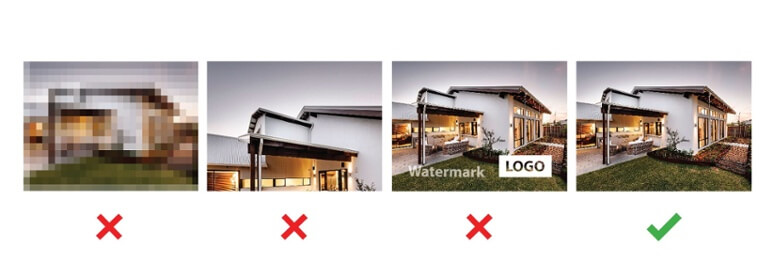By Restb.ai on 17 October 2017
Consumers now expect to ask questions of their computers and mobile devices in the same way they would ask an office secretary or store clerk: in their own language. And they expect rich, well-organized answers in kind.
Let’s face it -- keyword searches like “Barcelona flat two-bedroom” have let the machines have it their way. It’s stiff, mathematical, unnatural for people to think and type in flat, ungrammatical phrases.
Things become even more complicated when machine users add an “and” or an “or” or parentheses (?) to more fully qualify their queries. How many of us passed the part of middle school mathematics courses titled, “Boolean Algebra”, the sort of logic that keyword searches are based on.
So, because most consumers have become quite savvy in their use of computers, they resort to typing -- and, increasingly, speaking -- their complex queries into computers. And, they expect hero shots of prospective properties listed online: photographs of settings that reflect what they value in a home.
Artificial Intelligence Makes Searches Natural
Now, Artificial Intelligence (AI) and Computer Vision technologies are giving power back to the people. Real estate websites in particular are the beneficiaries of the new technologies.
Computer Vision can determine and tag the setting in which a photograph was taken; for instance, “living room”, “kitchen”, or “bathroom”. And identify the details in the context that matter to real estate customers: "stainless steel", "skylight", "fireplace".
Not Every One Can Be a Hero
Not every shot of a property can be a shot that shows off facets of a property that most interest a client. So, website curators need to ask three questions about a photo before uploading it for public viewing:
- Is the Image right for the website?
- Is the Image high quality?
- Are the features of properties appealing?
Is the image right for the website?
Agents and property owners flood real estate brokers with hundreds, if not thousands, of photo images everyday to be placed on property listing websites. A fair proportion of the photos will simply not meet the company’s standards.
Some images will have watermarks or logos imprinted on them. Others will be explicit advertisements for goods and services. Yet again there may be some in which an animal or human or some other, non-real estate-related object is meant to be the focal point of the picture.
Computer Vision in this instance can tag photos that may simply not be appropriate for posting on the website. A human curator can then review the flagged photos to verify that, indeed, the photo does not meet the company’s policy for quality and appropriateness.
Is the image high quality?
We’ve all seen the photos of this sort on real estate websites: the grainy, low resolution image of the family cat perched on the nicked wooden dining table. Definitely not a hero image of the kitchen or dining room of a property.
Images that make the best hero photos look as though they were professionally arranged and then shot. They are high resolution and place a luxury item or fixture at the center of attention that draws admiration by viewers. They are also uncluttered, especially with personal items like clothing, shoes, and leftovers of the previous night’s meals.
Skylights in living rooms, gleaming silver or gold fixtures in bathrooms that reflect off sparkling tiles, fireplaces with calming fires inside, and more, all present themselves well. Computer Vision more accurately defines high quality images of contexts and objects than it can unfocused, unrefined settings. And AI can more quickly and accurately present photos that customers consider high-value as hero shots of properties.

Are the settings of properties appealing?
A bathroom may have silver or gold fixtures; however, perhaps the lighting in the setting does not make the bathroom as a whole appealing. The bathroom, in this case, would not make a good candidate as a hero shot.
Similarly, if exterior shots do not highlight the best attributes of a property’s interior, they may detract from the customer’s viewing experience and reduce the potential for the property to be sold or rented.
Computer Vision can flag photos that may not fit rules that website owners have set for the listings. Identifying and enforcing the standards will increase AI awareness of what customers are really looking for in a property.
Heroes Rule
AI and Computer vision are returning the human search for shelter and comfort to the natural ways through which we talk, respond and interact with the world.
Website owners who are slow to realize this trend risk irrelevance, or worse, a drop in sales.
Read more about Image Recognition.




comments